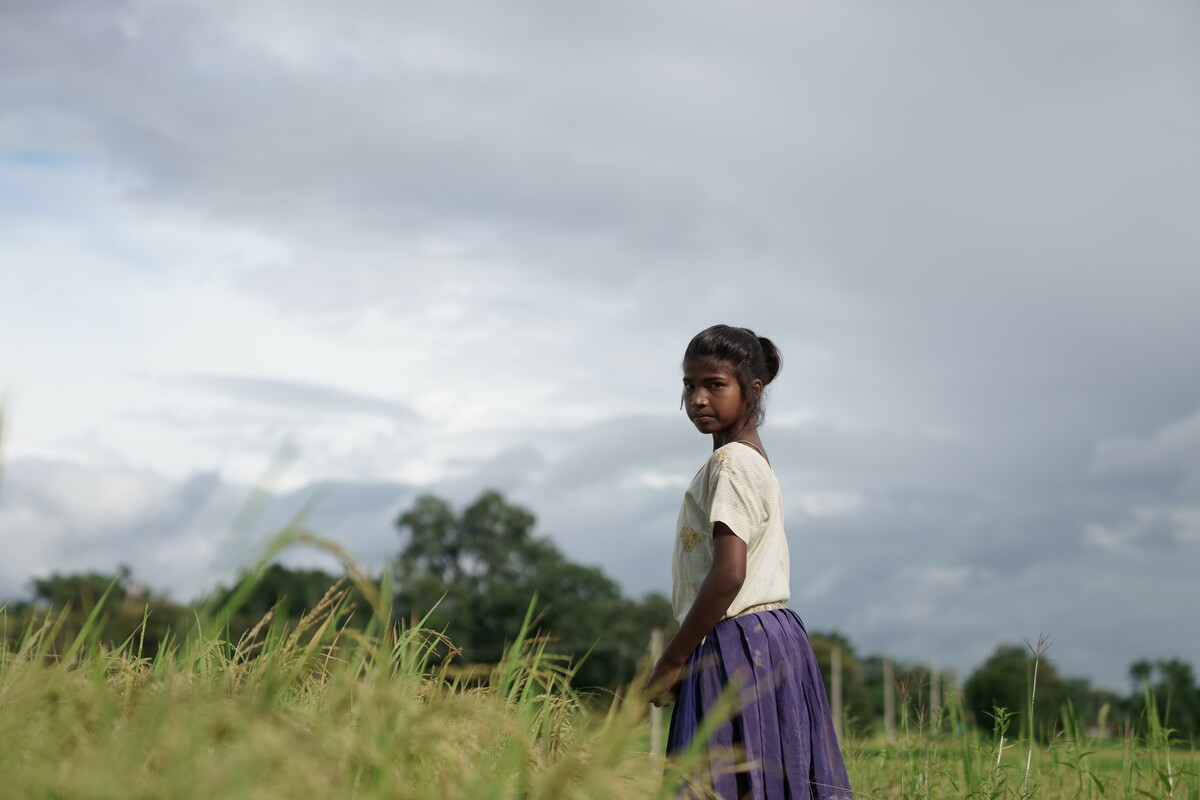For every two Covid deaths, one child becomes a covid orphan. As countries plan their recovery from Covid, vulnerable children are being forgotten. At risk of exploitation, trafficking and life in an orphanage—they are at the bottom of everyone’s list. Except ours.
“Our world turned upside down. I had no idea how to support my family without my husband. There aren’t any nursery or childcare services available in my village. And on top of this, the schools were closed due to Covid, so Sonia was sent home from school.”
Radha, Sonia’s mum
Since schools closed, Sonia‘s education was suddenly cut short. With her mother out looking for work, Sonia spent long periods alone, at risk of being trafficked for child marriage, child labour or prostitution, never to see her family again. All while coming to terms with the traumatic loss of her father.
Unable to find work, in desperation, Radha considered making the heartbreaking decision to send Sonia to an orphanage, so she would at least get three meals a day. But decades of research show that orphanages don’t protect children, they harm them. To feel safe and happy, to learn, develop and really thrive, all children need to know that they are loved, and they belong; they need families.
But decades of research show that orphanages don’t protect children, they harm them.
Determined to prevent Sonia from ending up in an orphanage, our expert local partners, Child In Need Institute (CINI), stepped in and provided Radha with the support she needed to keep her family together. Thanks to funding and technical support from Hope and Homes for Children, CINI have trained community health volunteers in the area to identify vulnerable children at risk of ending up in loveless institutions. They have also developed a new mobile app called KoboCollect which rapidly speeds up the process of getting the right support to these families before it’s too late.
Preethi, a local community volunteer trained by CINI, soon identified Sonia as being vulnerable. “During one of our home visits,” Preethi says, “we found out that Sonia’s father had died of Covid, and that the whole family had come to a standstill. The family was facing financial crisis.” Thanks to CINI’s app, Preethi was able to support Sonia’s family quickly and efficiently. “We submitted all the family’s details and highlighted their case as a red flag, so the district administration was notified,” Preethi explains. “Then we presented the case to the district administration and successfully got support for Sonia’s education and got her mother onto the Widow’s Pension and Food Security schemes.”
Preethi also helped enrol Sonia in a free government residential school nearby. Here, Sonia will be well looked after while her mum is looking for work and can still see her family on the weekends and go home for the holidays.
Crucially, Preethi also provided emotional support, empathy, and hope. Sonia remembers, “The CINI team visited us and helped us believe that we could overcome our situation.”
Without the app developed by CINI, children like Sonia are falling through the cracks at an alarming rate. Your money is helping us use innovative digital technology to protect Covid orphans like Sonia from loveless institutions.
With Sonia back in a classroom and the family’s basic needs covered, Sonia is no longer at risk of being trafficked or sent to an orphanage and can stay with her family—where she belongs.
“This support from CINI and the government prevented me from losing my daughter. She is back at school now and we all are living happily together. I will work hard to make sure that my children have everything they need, and whatever hardship they may face in their lives, I will always go the extra mile to support them.”
Sonia’s mum, Radha
Sonia is loving being back at school. She feels positive about the future now and is able to enjoy playing with her friends again, and her three-year-old brother, Ajeet. She says, “I am very happy that now I can continue my education and live a happy life.”
Support our work Help end orphanages for good.
Ensure children like Sonia stay safe and loved at home
